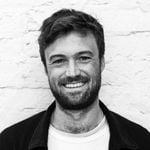Dana Awartani is a Saudi-Palestinian artist whose materially and technically diverse practice attends to cultural and vernacular forms through careful artistic interpretation. Working across large-scale installation, sculpture, drawing and performance, Awartani often draws upon her specialist knowledge of Islamic geometry and illumination, focusing on these ancient cultural forms because she recognises them as being vulnerable to cultural amnesia.
Read MoreHer works are acts of continual revival, performances of contemporisation. Intricate manuscript illumination, parquetry, ceramics, and embroidery, on first encounter, to be finely wrought examples of traditional Islamic art forms. Her pieces are firmly rooted in these traditional practices and she uses only their methods, such as only using materials and pigments she has prepared herself.
Influenced by these two diverse routes, her work is in their materiality and methodology, absolutely traditional, yet enacted in a contemporary moment. An example of her commitment being her achievement of a 'Ijaza' certificate — the highest form of recognition and authorization to transmit the sacred skill of Islamic geometry. Embodied knowledge underpins Awartani's practice, and she collaborates with artisans to realize projects to the highest levels of material tradition and technical authenticity. Her works are consistently concerned with conservation, through revitalisation, and motifs of transience, loss and ephemerality hallmarks of her rich, yet restrained practice.
Dana Awartani has received several awards, including 2021 the National Cultural Award by the Ministry of Culture of Saudi Arabia, and the 2020 Instituto Sacatar Residency Award - 21st Contemporary Art Biennial Sesc_Videobrasil. In 2020 Awartani was an artist in residence at NTU Centre for Contemporary Art Singapore.
Text courtesy ATHR Gallery



